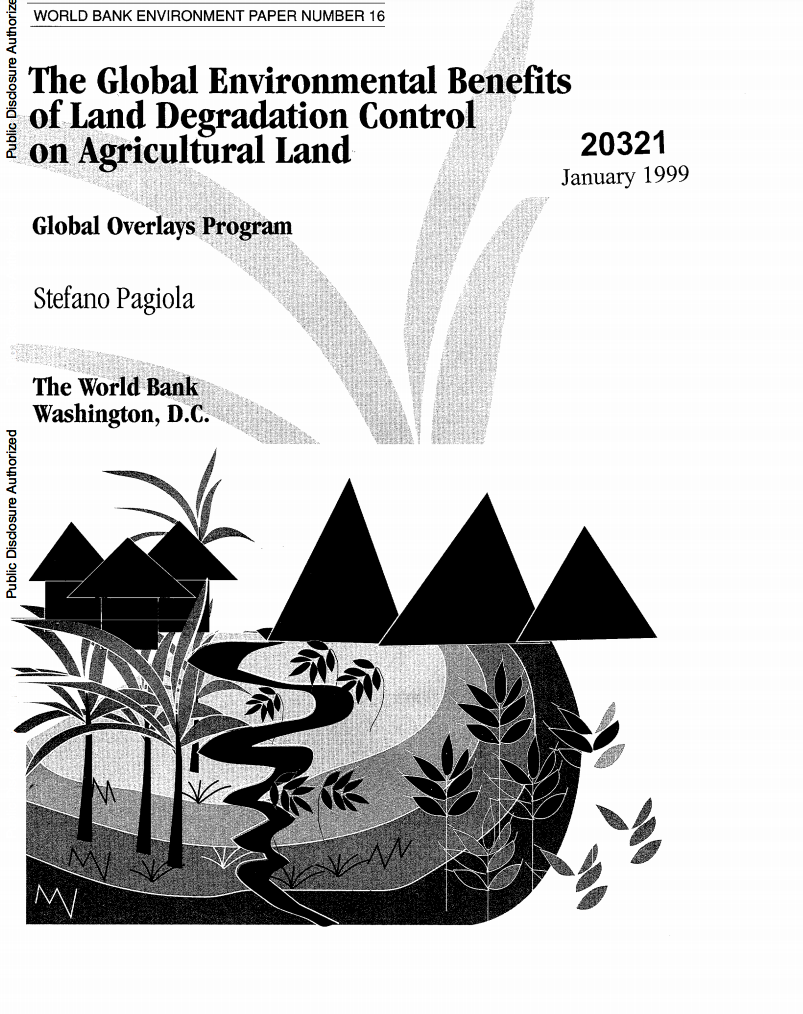Resource information
The note focuses on the global effects of land degradation, but emphasizes other important levels of land degradation: at the field level, it may result in reduced productivity; at the national level, it may cause flooding, and sedimentation; and, at the global level, it can contribute to climate changes, damaging bio-diversity, and international waters. The effects on climate changes are explored, and the report questions the extent to which land degradation on agricultural land, affects climate change. Does it increase emissions of greenhouse gases? Does it affect land's capacity to serve as a carbon sink? Can appropriate management enhance both land's productivity, and its capacity to store carbon? The carbon cycle in soils is analyzed, indicating land degradation is likely to reduce the ability of soils to serve as carbon sink, and release stored carbon into the atmosphere, and, bio-diversity effects are likely to be adverse. Global benefits of land degradation control, include afforestation, to allow increased carbon sequestration, and provide adequate bio-diversity habitats; and, community-based wildlife management, can provide alternatives to some marginal areas. Although integrating global dimensions into land degradation control projects, may reverse the field level, or national problems it is causing, difficulties and constraints will likely contribute to the failure of these projects.


